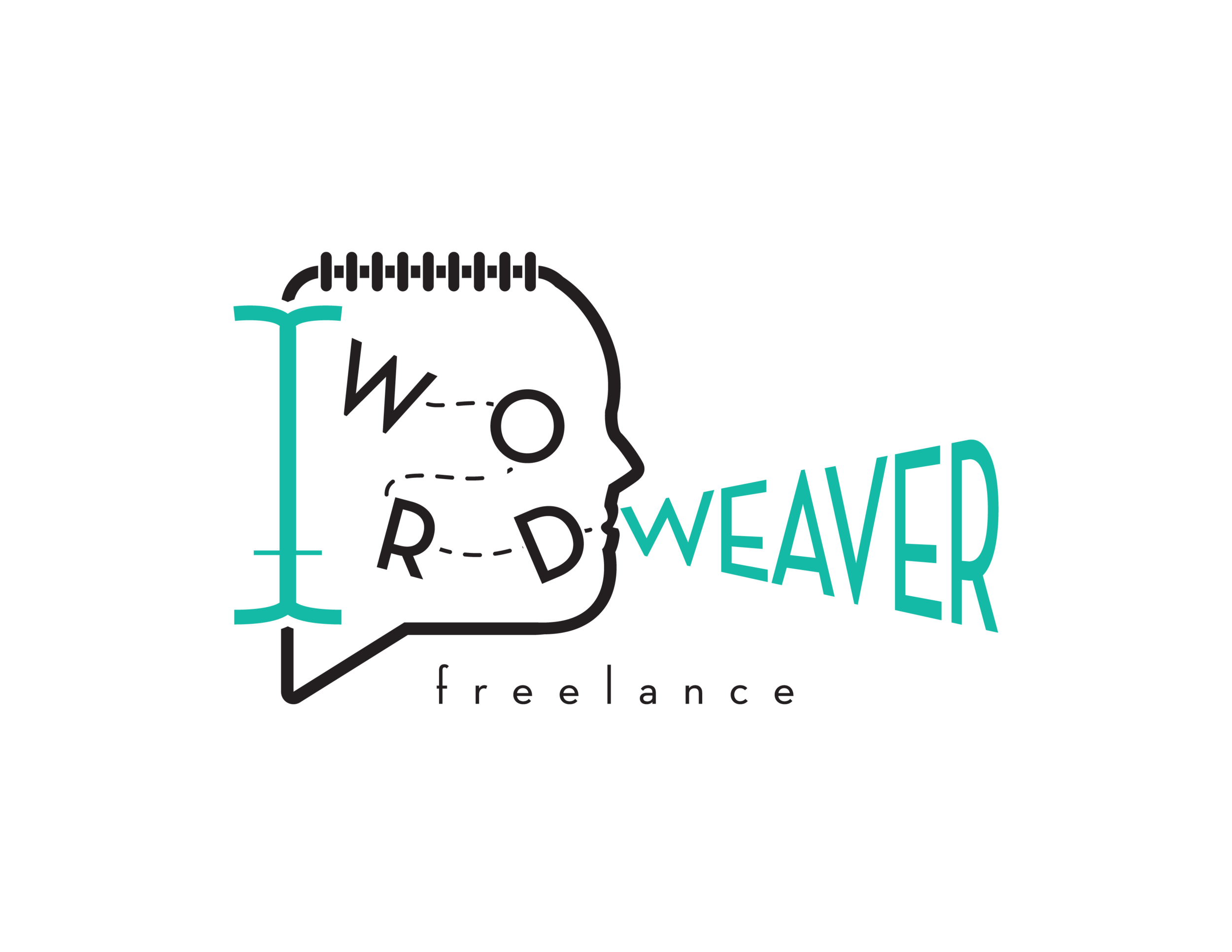Niche Your Way To Finding Your Marketing Tribe
I come from a very large tribe; one that has members on almost every continent. It lived together in one village before gradually scattering to the winds, only to come together in new forms.
Over generations, this tribe has evolved its own symbols, initiation rites, tribal elders, even sacred texts. The texts are central to our community because this tribe revolves around the works of a storyteller.
You might have heard of him. His name is Neil Gaiman.
If you haven’t heard of Neil, it’s probably because you aren’t much of a reader or a geek. That’s okay; you don’t have to be a book-worm or a fanboy/girl to appreciate his story, or rather our story because over the next few posts…
…I’m going to tell you the story of my people.
Actually, I’m going to tell you the story of how Neil Gaiman found his niche and thus found his tribe, of which I am a proud, red balloon-carrying member.
I’m going to give you some ideas on how you can find your own niche and create a tribe, too; and you don’t even have to top the New York Times bestseller list or win the Newbery Medal to do so.
http://tumblr.com/
We Are The Knights Who Say "Niche"
First of all, full disclosure: my career as a freelance writer is still in it’s infancy. I’m still getting to know myself as a writer and I’m carefully nurturing my business like a newborn infant, even down to the sleepless nights (she says as she blearily puts the finishing touches on this post at 2:00 am).
Which means I’m in the process of carving out my own niche. Part of the purpose of this post (and, frankly, of most of my posts) is to help me further define myself as a writer and entrepreneur.
So let’s figure this out together, shall we?
Let’s take a look at the word “niche”: I float between pronouncing it “neesh” and “nitch,” depending on which side of the Mason Dixon line I rolled out of in the morning. Quite simply, it’s the French word for “that little recessed shelf people put tchotchkes on.”
Huh. I personally think the world of business would be a brighter place if we could replace the term “niche market” with the term “tchotchke-shelf market.”
Anyway.
The Three Rules of Niche-dom
I found an incredibly helpful video by Marisa Murgatroyd of Live Your Message; she's a branding coach and downright brilliant and passionate person. A lot of what I’m going to discuss over the next couple posts will be based on what she had to say, so please take about 40 minutes to watch Marisa break down “niching.” (Ok, I’m squirming at the use of "niche" as a gerund, so we’ll just pretend that we never saw that and move on.)
Murgatroyd says that in order to have a niche, you have to have the following things:
1) Something people want and are willing to pay for.
Using our friend Neil Gaiman as an example: back in the late 1980’s, Neil had just ended a career in journalism and happened to have a talent for “taking a voice that already existed and parodying or pastiching it." This skill was quite handy for writing comic books, since comics writers have to sometimes pick up where their predecessors left off in a series. It took a deft hand to create a seamless transition while gradually adding their own voice and point of view to the comics universe they help create.
2) A passion so deep for what you do that you could do it every day for the rest of your life.
In this instance, Neil and I have the same passion (which is why I know we belong to the same tribe): a worship of stories and language. Comic books provided a laboratory for Gaiman to experiment with the form of storytelling. He could break down a story moment by moment, play with perspective and time, delve into character back-stories, retell myths and fairy tales, and all with deadlines looming overhead. As a self described “feral child who was raised in libraries,” storytelling is in this man’s blood.
3) Something no one can do the way you can or better than you can.
Gaiman happened to appear on the comic book scene at a moment when bright little superhero fans of the eighties were growing up into moody teenage comic book fans of the nineties. These were the high school outcasts who listened to The Cure and Souxie and the Banshees and were desperate to find characters in pop culture to relate to. They were looking for a place to fit in.(If this sounds familiar, welcome, fellow tribesman.)
Neil Gaiman’s quirky, dark, horror-fueled narrative style was exactly what those kids were looking for. He was at the epicenter of a shift from sophomoric superhero antics to deep explorations of the psyche and the archetypes behind superhero myths. He took a Jack Kirby character from DC Comic vaults, The Sandman, and re-imagined the superhero as a living personification of Dreams: Morpheus, who wore all black and looked like a cross between David Bowie and Robert Smith of The Cure.
Gaiman nailed it. For all eight years of Sandman’s run, he not only found his niche, he made something that has yet to be imitated: a graphic novel series that transcended gender, age, and appreciation for the comic book form.
Finding What Isn't Your Niche
Okay. You might be thinking that Gaiman had a combo of talent, connections, and “right place-right time” that only a tiny percentage of people get a chance to have in this fragmented world of ours. And you would be correct. But he also has something that we all have, or should develop: a strong sense of who he is, what he loves, and what he wants to put out into the world.
Take a moment to think about where you are in your career: do you feel like you’ve found your place in the world? If not, what’s keeping you in the uncomfortable spot you’re in? Money? Obligation to the years you spent training? Fear of the unknown?
I love the three rules of niche-dom because they force people to really examine their career and be honest with themselves about how content they are. Yes, money matters. Yes, education matters. Yes, stability matters. But at some point you have to ask: at what cost?
At one point in my pre-writing career, I was an advertising sales rep for a phone book company. I was good at it. I was a top rep for our office. And jeez…the money was good. I could have had a thriving career if I wanted one. I tried so damned hard to convince myself that I could be happy making a career out advertising sales.
But it was all lies…lies!
The thought of showing up every day and convincing business owners that my (increasingly obsolete) product could change their lives just filled me with dread. Yes, I had a talent for sales, but my passion wasn’t there.
Not my niche.
I was also an actress since the age of five. I spent years performing in productions and took out thousands of dollars in student loans to fund my training. I loved doing theatre and by most accounts I was a pretty entertaining performer. If I had been able to make a career out of it, I could have conceivably done it for the rest of my life.
But did I have something that no one else had? Was I better than most at what I did? Nope. I had fun, but I had to face the facts: acting was not my niche.
http://tumblr.com/
A Niche is a Haven
Fast-forward a few years and a couple babies later: my fingers *itch* to tap away at my keyboard every morning. My very patient and supportive (not to mention incredibly handsome) husband has to beg me to tear myself away from reading up on content marketing and business storytelling and writing blogs and for God’s sake, woman, get to bed.
I may be at the first twinkling of my career, but I see building my freelance writing business as a defining moment: this was what I was born to do, I just never knew it until now.
As I gain more feedback from clients and readers, I’m discovering that my particular take on digital content (”stop marketing to consumers and start telling stories to people”) is fairly unique and well-timed: the market is crying out for copywriting storytellers because digital audiences are more responsive to emotional marketing (more about that later).
So here I sit happily in my tchotchke-shelf.
Where My People At?
Although I’m still figuring things out, there’s something I’m learning with each blog post I publish: the more you embrace who you are, the more focused and vivid your presence will be, and the easier it will be for your fellow tribesmen to find you.
My new friend Marisa Murgatroyd (she doesn't know it yet, but she totally is) also has this piece of wisdom to bestow: “Niche” is the doorway to “tribe.”
Scratch Your Niche
I’m going to stop here in Niche-world and continue on to Tribe-land next week. For now, just take a few minutes to consider the following questions:
1) What do you have that people want and are willing to pay for? (Oh, get your mind out of the gutter…)
2) What comes so naturally to you that it’s simply a part of who you are?
3) What do you have such a passion for that you could never tire of it?
4) What is something that you can do better than most people?
5) What makes you unique from most people?
6) What is it that you bring to the world?
Here’s a tip: don’t over-think this. If you don’t know the answers to these things, it’s okay: ask a friend or loved one what they think. You may just discover something new about yourself.
If you’ve found your niche and would like to share how you discovered it, please leave a comment, twitter a tweet at @WordWeaverFree, or drop by and say “hi” on my Facebook Page.

